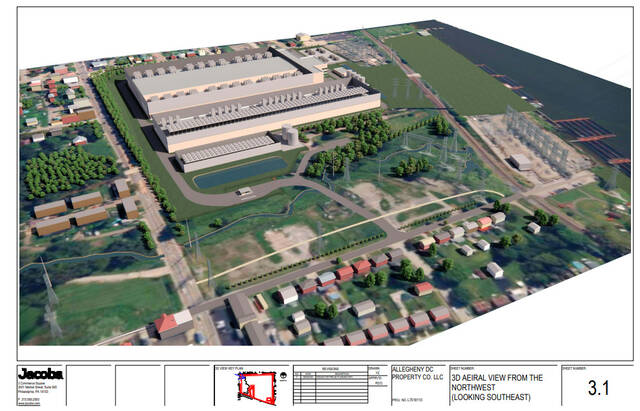https://triblive.com/opinion/matt-shorraw-natural-gas-not-sustainable-for-pa-s-data-centers/
Matt Shorraw: Natural gas not sustainable for Pa.’s data centers

Gov. Josh Shapiro recently defended using natural gas to power data centers in Pennsylvania, calling it “environmentally sustainable.” As an organization committed to public health, Physicians for Social Responsibility Pennsylvania strongly disagrees. The evidence shows that relying on natural gas — or labeling it as sustainable — poses serious risks to health, the climate and residents’ utility bills, especially for frontline communities already facing disproportionate harm.
If sustainability means protecting human health and reducing environmental burdens, natural gas fails the test. Studies by the Pennsylvania Department of Health and the University of Pittsburgh examined health outcomes in eight southwestern Pennsylvania counties and found significant associations between proximity to gas wells and adverse effects. Children living within one mile of fracked wells had five to seven times the risk of developing lymphoma compared to those living farther away. People with asthma who live within 10 miles of active natural gas wells experienced four to five times more severe attacks, emergency department visits, and hospitalizations. Birth outcomes were also worse: mothers living near gas operations faced higher risks of low birth weight babies and had babies that were small for their gestational age.
Frontline communities in counties like Washington, Greene, Beaver and Allegheny are often located near gas compressor stations, waste processing facilities, pipelines and well sites, where emissions and leaks are frequent and regulatory oversight has lagged. Many of these residents are lower-income or rural, with few resources to respond or relocate.
The “cleaner” image of natural gas relies on claims that leaks are small. In reality, a 2017 Environmental Defense Fund study found that Pennsylvania’s shale gas industry leaked seven times more methane than the state reported. Methane, a potent greenhouse gas, traps far more heat than carbon dioxide over the critical short term.
Studies show the Appalachian Basin loses about 1% of its gas during production and transport, far above industry targets of less than 0.2%. Methane leaks often coincide with emissions of other toxic pollutants, including volatile organic compounds, nitrogen oxides and particulate matter — all of which harm lung function, worsen asthma and may contribute to cancer risk.
Data centers also place a heavy burden on Pennsylvania’s electricity system. They already use about 3.2% of the state’s electricity, and as more large facilities come online, they increase demand on the power grid. This can require upgrades to transmission lines and generating capacity, costs that are often passed along to regular customers, especially low-income households and renters.
In the Pittsburgh region, Duquesne Light’s default electric rate rose 15% and West Penn Power’s by about 9%, in part to secure additional generating capacity. Everyday customers continue to bear the costs of fuel volatility, pollution and poor air quality, while the companies running the data centers do not.
Adding to these concerns, Pennsylvania House Bill 502 would strip municipalities of their rights to regulate data centers and related infrastructure, silencing the very communities most affected. Local governments are closest to the people and best positioned to protect residents’ health and quality of life. By preempting local authority, HB 502 tilts power toward industry and away from citizens, further limiting community voices in decisions that directly impact the air they breathe, the water they drink and the cost of their electricity.
If we take climate science, health research and justice seriously, a truly sustainable power system must move beyond natural gas. Data centers should be powered by zero-carbon, renewable energy; and existing gas infrastructure should be strictly regulated, with required leak detection, repair, stricter reporting, and closure or remediation of abandoned wells. Utility planning and cost allocation must be transparent so that the costs of upgrades are fairly distributed, and communities already exposed to fracking and gas infrastructure must be prioritized in policy and permitting decisions to protect air quality, water and public health.
Shapiro’s claim that natural gas is “environmentally sustainable” for powering data centers does not hold up. Methane leaks, public health dangers, and rising utility costs are real and ongoing. Pennsylvania has the potential — and obligation — to lead with clean, renewable, zero-carbon power while creating good union jobs. We can build the data economy of the 21st century without sacrificing public health, environmental justice, or leaving residents to pay the price.
Matt Shorraw is policy and program coordinator for Physicians for Social Responsibility Pennsylvania and former mayor of Monessen.
Copyright ©2026— Trib Total Media, LLC (TribLIVE.com)
